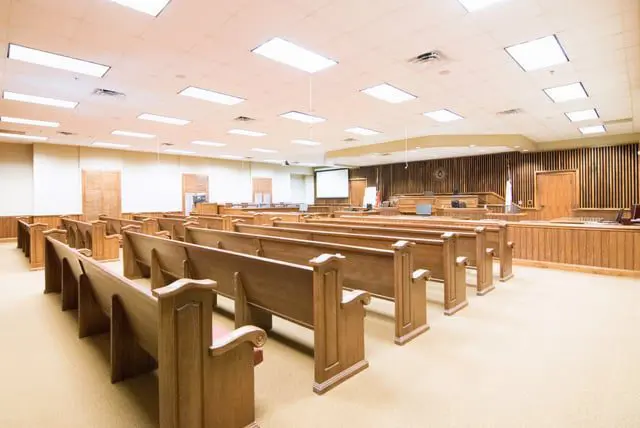Protections for students and employees on campus are not just a moral obligation, but a legal one as well. Understanding the legal responsibilities and safeguards in place is crucial for creating a safe and secure environment. From emergency response protocols to Title IX rights, educational institutions must adhere to specific guidelines to protect those within their community. In this article, we will investigate into the legal framework surrounding campus safety, shedding light on the imperative information that every student, faculty member, and administrator should be aware of.
Responsabilidades legales
Institutional obligations
One of the key legal responsibilities that educational institutions have is ensuring the safety and security of their campus and everyone within it. This includes implementing and enforcing policies and procedures to prevent and respond to incidents effectively.
Compliance with federal regulations
Legal compliance with federal regulations, such as the Clery Act and Title IX, is crucial for educational institutions. Failure to comply with these regulations can result in severe consequences, including fines, loss of funding, and damage to the institution’s reputation.
The Clery Act requires campuses to disclose information about crime on and around their campuses and provide timely warnings of threats. Title IX prohibits sex-based discrimination in education and requires institutions to address and prevent sexual violence.
Protections for Students
Rights under Title IX
Under Title IX, students have the right to be protected from gender-based discrimination, including sexual harassment and assault, in educational programs and activities. This law is a crucial protection for students, ensuring a safe learning environment free from any form of gender-based violence.
Reporting incidents and procedures
The reporting of incidents involving sexual assault or harassment is a critical step in ensuring campus safety. These procedures are in place to protect the victims and hold the perpetrators accountable. It is important for students to be aware of these reporting mechanisms and the support services available to them.
Protections for students extend beyond just reporting incidents. It is imperative for institutions to have clear policies and protocols in place for handling such cases. By providing a safe and supportive environment for victims to come forward, universities can effectively address and prevent campus violence.
Campus Security Measures
Emergency Response Plans
One crucial aspect of campus security measures is the implementation of comprehensive emergency response plans. These plans outline specific protocols to be followed in case of various emergencies, such as natural disasters, medical emergencies, or active shooter situations. By establishing clear procedures and conducting regular drills, campuses can ensure a swift and organized response to any crisis.
Surveillance and Monitoring Systems
One important component of campus security is the use of surveillance and monitoring systems throughout the campus. These systems, which may include CCTV cameras, access control systems, and alarm systems, help enhance overall safety and security. Surveillance and monitoring systems serve as a deterrent to potential criminal activity and provide valuable evidence in the event of an incident.
For instance, CCTV cameras can help track the movements of individuals on campus, identify suspicious behavior, and assist law enforcement in their investigations. Access control systems ensure that only authorized individuals can enter certain areas, reducing the risk of unauthorized access and potential threats. Alarm systems can quickly alert authorities to emergencies, enabling a rapid response to mitigate risks and ensure the safety of everyone on campus.
Para terminar
Hence, understanding the legal responsibilities and protections surrounding campus safety is crucial for ensuring a secure environment for students and staff. By following the regulations and implementing necessary measures, educational institutions can create a safe and supportive atmosphere conducive to learning and growth. Note, the safety of individuals should always be a top priority in any educational setting.
PREGUNTAS FRECUENTES
Q: What are the legal responsibilities of campuses regarding safety?
A: Campuses have a legal duty to provide a safe environment for students, faculty, and staff. This includes implementing safety protocols, maintaining security measures, and addressing any potential risks or threats promptly.
Q: What protections are in place for campuses regarding safety incidents?
A: Campuses are protected by laws such as the Clery Act, which requires institutions to report crime statistics and provide timely warnings about safety threats. Additionally, campuses may have liability protections under certain circumstances, but it is crucial to adhere to legal requirements and best practices.
Q: How can campuses balance legal responsibilities and student privacy rights in safety matters?
A: Campuses must navigate the delicate balance between maintaining safety and respecting student privacy rights. It is vital to follow privacy laws such as FERPA while being transparent about safety concerns and involving relevant parties in the decision-making process to ensure compliance and protection for all individuals involved.
Type of Attorney for This Type of Legality and How to Find Them on Attorneys.Media
When dealing with legal issues related to special education and campus safety, it is essential to find an attorney who specializes in education law and has experience with disability rights. These attorneys possess the knowledge and expertise needed to navigate the complex regulations that ensure the safety and well-being of students with special needs.
Special Education Law Attorneys: These attorneys focus on the legal aspects of education for students with disabilities. They are well-versed in laws such as the Individuals with Disabilities Education Act (IDEA), Section 504 of the Rehabilitation Act, and the Americans with Disabilities Act (ADA). They help ensure that students receive the appropriate accommodations and protections in the educational environment, including campus safety measures.
Finding a Qualified Attorney: To find a qualified special education attorney, visit Abogados.Media. This platform offers a comprehensive directory of attorneys specializing in various areas of law, including special education and disability rights. You can search for attorneys based on their expertise, location, and client reviews. The platform also provides informational videos to help you understand the attorney’s approach and experience.
Consulting with an Attorney: When selecting an attorney, consider their experience with cases similar to yours, their qualifications, and their reputation. Look for attorneys who have successfully handled special education and campus safety cases and have positive testimonials from previous clients. An initial consultation can provide valuable insights into the attorney’s strategy and compatibility with your needs. Utilizing the resources on Attorneys.Media, you can find the right attorney to advocate for your child’s safety and educational rights, ensuring they receive the protections and support they are entitled to under the law.
Attorneys.Media Video Document References
- Is Personal Injury Part of Your Law Practice?
- As an Attorney, How Are You Generating Content for Your Online Presence?
- How Can You Help Potential New Clients Get Their Questions Answered?
- How Do You Differentiate Yourself When Someone Looks Online for Help?
- How Do You Differentiate Yourself as a Criminal Defense Attorney?
- Have You Been Thinking About Video Marketing for Your Law Firm?
- Should Attorneys Use Video Marketing to Attract New Clients?
- What Do Potential Clients See When They Research Your Name Online?
- Cómo puede ayudarle Attorneys.Media








